Monthly Archives: June 2023
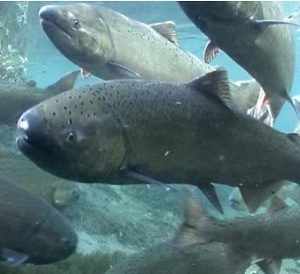
Chinook troll fishers in Southeast Alaska to put hooks in water July 1, but how many can they catch?
One day after the Ninth Circuit Court of Appeals overturned a Seattle judge’s ruling that had shut down the Southeast Alaska chinook troll fishery, the Alaska Department of Fish and Game delivered the catch limit news to the troll fishermen, specifying the number of kings they are allowed to catch during the upcoming season. Commercial trollers will have a total allocation of 74,800 chinook salmon during the first retention period, which begins July 1. Based on data from past years, the department thinks that the goal will be reached in 9-10 days, depending on weather. >click to read< 09:35
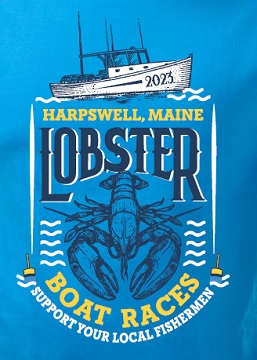
Harpswell Lobster Boat Races to honor young lobsterman who died in crash
This year’s Harpswell Lobster Boat Races will honor a young Harpswell lobsterman who died in a vehicle crash last fall by featuring his buoy colors on event merchandise, with proceeds going to a local charity. Mason Warren, 21, died in late October when he crashed his pickup truck on Mountain Road in Harpswell. No other vehicles were involved. Warren was a beloved member of the local lobstering community who died on the way to his boat, according to Amanda Peacock, a longtime committee member, apparel coordinator and treasurer for the races. “The color scheme of our shirts this year matches his buoy colors (blue, yellow and black) … in honor of him,” >lick to read< 08:41
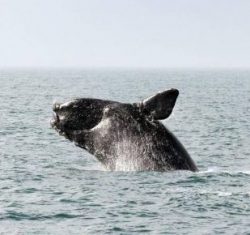
Rep. Carter introduces bill to prevent NOAA from implementing speed rule
U.S. Rep. Buddy Carter, R-1, is defending a bill he introduced Friday that would prohibit a federal agency from requiring more vessels to adhere to a low speed when approaching the East Coast during certain months of the year. House Bill 4323 calls for prohibiting the issuance of an interim or final rule that amends, updates, modifies or replaces the North Atlantic Right Whale Vessel Strike Reduction Rule until mitigation protocols are fully developed and deployed. If passed, the U.S. Department of Commerce, the parent agency of NOAA, would be required to develop and deploy technology to monitor Atlantic waters for right whales. >click to read< 07:53
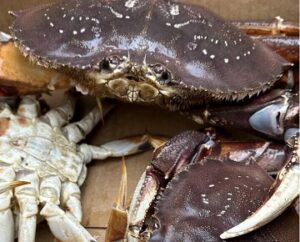
Crab pots ‘absolutely stuffed’ as Bering Sea Dungeness fishery breaks records
While many Bering Sea crab populations are in freefall, Dungeness crab is breaking records in regions that hardly used to see them. The North Peninsula District in the eastern Bering Sea opened as a commercial Dungeness fishery in the early ‘90s. In those early days, it was common for just one or two boats to fish there — many seasons, there were none. The numbers increased modestly over the ensuing decades — but that growth has recently become exponential. “The pots that we’re seeing coming out of this fishery are absolutely stuffed with crab,” said Ethan Nichols, who works for the Alaska Department of Fish and Game. “Like, you don’t even know how many crabs can fit in a pot.” >click to read< 20:43
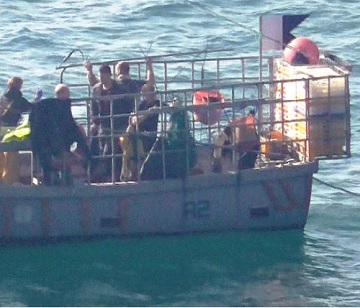
Illegal Cornwall clam fishermen put public health and honest fishermen’s livelihood at risk for greed
A group of fishermen who illegally fished for high value razor clams by electrocuting them have put the livelihood of honest fishermen at risk, damaged the environment and endangered consumers’ health for greed, a judge said. Luke Anderson, 44, of St. Margarets–at-Cliffe in Kent, Steven Corcoran, 46, from Motherwell in Scotland, Marc Drew, 50, from Mousehole, Graeme Etheridge, 61, of Paul in Cornwall, Jake Richardson, 26, of Bedminster in Dorset, David Thomasson, 52, from Bodmin, Ross Waters, 47, of St Buryan, and Simon Tester, 52, from Canterbury in Kent, were all employed by boat owner David Turner (from Kent) – who is to be sentenced for illegal fishing offences in September. >click to read< 14:40
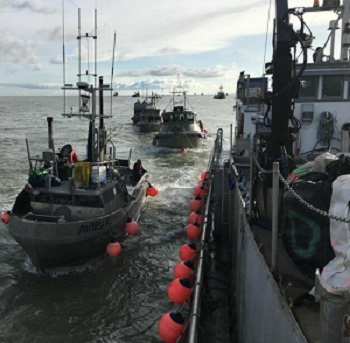
‘Alaska’s secret wild salmon prices hurt everybody,’ fisheries journalist says
A prominent fisheries journalist is calling into question the transparency of how much Alaskan salmon fishermen get paid for their catch. John Fiorillo is the executive editor of Intrafish, a global news bureau covering seafood, commercial fisheries and aquaculture industries worldwide. He argues that the secretive nature of price setting in Alaska salmon fisheries strains the relationship between fishermen and processors and puts everyone on precarious financial footing. Fiorillo joined KDLG’s Corinne Smith to talk about why seafood companies don’t usually set a base prices, and why he thinks it’s time for a change. >click to listen, or read< 12:33
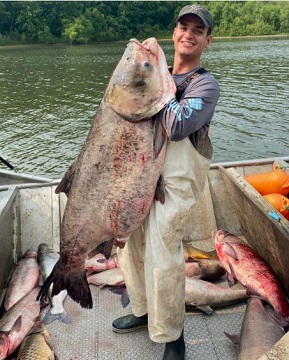
“Largest bighead carp we’ve caught:” Commercial fisherman snags massive fish in Illinois
A commercial fisherman scouring the backwaters of the Illinois River last week may have caught more than he bargained for when a massive bighead carp lodged itself in his net. What’s more surprising, it was the second fish in as many days with a weight hovering around the 100-pound mark that Charlie Gilpin Jr. hauled in while fishing the same waters. Gilpin reportedly caught the gigantic bighead carp on Thursday, June 15 — one day after he caught a 90-pounder in the same area, said Jason DeBoer, a larger river fisheries ecologist with the Illinois River Biological Station, a monitoring and research facility. >click to read< 11:50
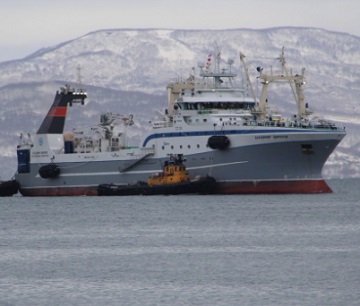
Are you eating Russian fish? Imports slip through a loophole involving China, says Sen. Dan Sullivan
The loophole in the law is the subject of Sullivan’s U.S-Russian Federation Seafood Reciprocity Act of 2023. Over 18 months ago, Sullivan first attempted to pass his U.S-Russian Federation Seafood Reciprocity Act by unanimous consent, but the bill was blocked by Senate Democrats. The current version was blocked Thursday by Sen. Ed Markey, a Massachusetts Democrat, just like it was last year. Markey’s own state seafood industry is not supporting him in his opposition to Sullivan’s legislation. In February, the Massachusetts Seafood Collaborative called upon elected leaders to sanction Russian seafood imports. “If you’re a big fisherman in Massachusetts or the great state of Alaska…you cannot export one fish to Russia. Nine years of a ban. And guess what? The United States lets Russian seafood into America almost duty free … >click to read< 10:17
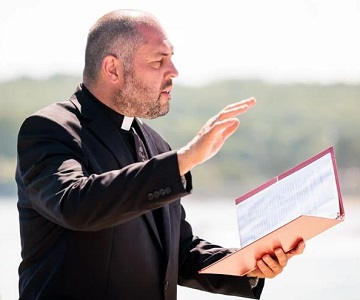
Gloucester: Blessing of Fleet asks for good weather, a good catch and a safe return
The annual Blessing of the Fleet held Sunday afternoon saw several dozen vessels blessed by the Rev. James Achadinha of the Catholic Community of Gloucester and Rockport. On Sunday morning, hundreds gathered for the annual open air Mass, held before the outdoor altar at St. Peter’s Square. Following the Mass was the procession of several bands, floats and eight men who carried the statue of St. Peter on their shoulders. By the afternoon, crowds gathered along Stacy Boulevard to witness the blessing of several dozen vessels, part of the local Italian-American fishing fleet, one of the St. Peter’s Fiesta’s integral events. 8 photos, >click to read< 09:18
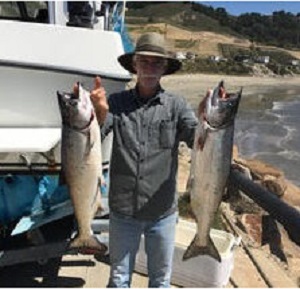
Will Morro Bay wind farms be the demise of Port San Luis?
I heard about the proposed Morro Bay Offshore Wind Farm awhile back but didn’t really think too much about it. But now I understand there is a plan to industrialize Port San Luis to be used as a base to assemble, operate, and maintain the 1,000 feet wind turbines for the wind farm and for the Vandenberg Space Force base to barge in rockets and components that are too large to travel by land. I am not sure this is such a good idea. I began to do some research on wind farms. This developed into hours and hours of digging through material. What I have learned is quite alarming. >click to read< 08:06
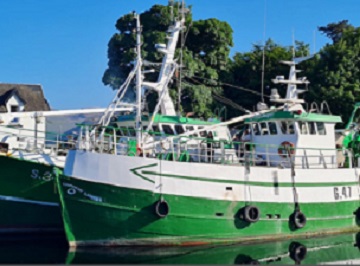
Last Voyage of Two Irish Fishing Vessels Before Break-Up in Denmark
Two Aran Island fishing vessels which were approved for Irelands decommissioning scheme, recently completed their last trip before being broken up. The 17-metre Connacht Ranger and the 20-metre Conquest were photographed on their journey from Ireland to Denmark. Skipper-owner John Conneely, from the Aran Island of Inis Mór, opted to take the vessels to Denmark for scrapping. “Beautiful but poignant images of MFV Connacht Ranger and Conquest waiting to go up Neptune’s Staircase on the Caledonian Canal en route to Denmark for decommissioning. A stairway to heaven of sorts for two boats whose time is sadly up,” read a post on Twitter by Conneely’s partner, Mary-Frances Beatty.Photos, >click to read< 20:14
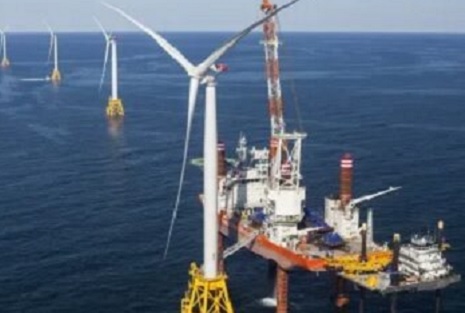
Oil Company con game exposed; the old switcheroo by Jim Lovgren
Oil companies developed techniques to not only locate oil and gas reserves thousands of feet below the ocean bottom, but to drill and recover them. Unfortunately, the tools used to locate oil reserves under the ocean floor, primarily seismic air gun arrays, have left a trail of dead sea creatures in its wake. Just like the US Navy, who for years denied the growing body of evidence linking military sonar usage to localized marine mammal strandings, the oil industry has denied any link of seismic research to the marine mammal strandings that invariably occur near their operations. Along comes Biden’s green new deal, and the east coast is now swamped with offshore research vessels using both sonar and seismic devises to map the sea floor and thousands of feet underneath it, for wind development. The same vessels in many cases that would have been involved with the 2012 proposed marine mammal massacre in search of oil reserves. These vessels are not only surveying the area in the lease site, but for many miles away from them, in many cases overlapping into other lease sites, or just mapping bottom that will never be available. Why? >click to read< 11:11
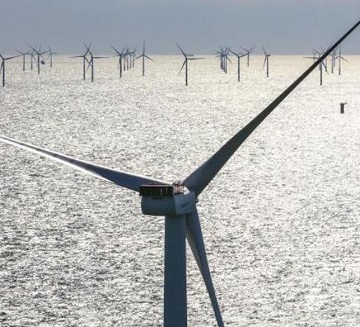
Offshore Windfarms Threaten to Pull Out of Uneconomical Contracts
A string of offshore wind projects meant to power Britain are in jeopardy after the global race to net zero sent costs soaring, casting doubt over the industry’s future as a cheap source of energy. A surge in supply chain costs has pushed up the price of wind turbines, while increases in global interest rates have raised refinancing costs substantially. It has made several projects unviable just a year after they won government subsidy contracts – leading to fears from industry insiders that Britain’s future is in jeopardy as the “Saudi Arabia of wind”. Schemes developed by Danish company Ørsted and Swedish player Vattenfall are among other projects understood to be at risk, as the industry seeks more government help to ensure projects remain viable. >click to read< 09:30
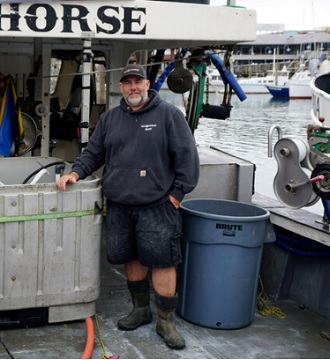
This fishing gear can help save whales. What will it take for fishermen to use it?
Fishing boats would normally still be unloading Dungeness crabs at San Francisco’s fisherman’s wharf in May. This year, the docks were quiet, except for one berth. “We’re the only boat right now,” says Brand Little, standing next to a large tank of bright red crabs on the deck of his boat, the Pale Horse. State regulators closed the Dungeness season two months early this year, due to the arrival of humpback whales in the area. On both the East and West Coasts, crab and lobster fishermen are seeing their fishing seasons shrink over concerns that whales are getting entangled in the long ropes attached to their gear, accidents that often end up injuring or killing the animals. Photos, >click to read< 08:08
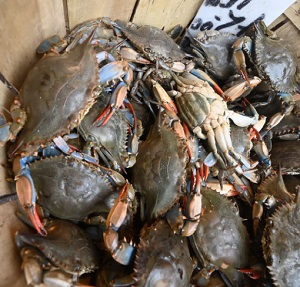
East Hampton fishing for stiffer laws against ‘organized crab crime ring’ stealing bushels of shellfish
Town officials are fishing for even stiffer laws in the war against “organized crab crime rings.” The tougher penalties are needed to turn the tide against “vans full of” out-of-towners bagging “bushels and bushels of shellfish out of Napeague Harbor” and other waterways including Georgica Pond, the town’s attorneys said. “They basically just start taking everything they can grab from the shallows and those two waters: from clams to scallops to conchs, hermit crabs, blue claw crabs. Pretty much grab any size of anything they can in sight,” said Chris Carillo, attorney for the town’s trustees. The night raiders employ a lookout to alert them to Marine Patrol officers and those who are caught don’t carry ID, and because it’s merely a violation, the offenders avoid being fitted for handcuffs, Carillo said. >click to read< 18:41
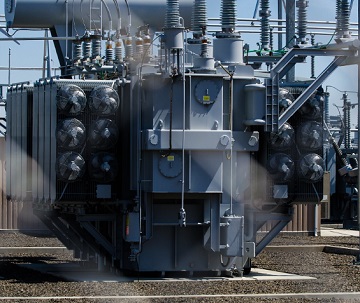
Fears raised over environmental impact of ‘disproportionate’ offshore wind-farm substation
Plans for a wind-farm substation has sparked fears over the loss of agricultural land and that a rural village will end up “semi-industrial”. Both Denbighshire and Conwy councils have written to Mona Offshore Wind Farm Ltd over concerns about a 107-turbine wind farm planned off the coast of North Wales – with the underground cables coming to shore around Llanddulas and Abergele. Now a group of residents living in the village says they want to raise awareness about what is happening to the rural area. One of the members, a 67-year-old retired steelworker, said he had lived in Cefn Meiriadog with his wife for ten years and wanted to raise awareness of the amount of development planned in the St Asaph area. “Mona Offshore Wind farm is a monster,” he said. >click to read< 12:35
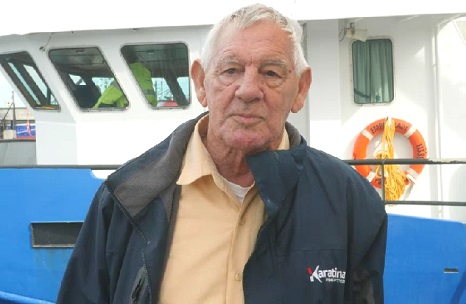
Retired tuna boat skipper Terry Aldenhoven reflects on six decades of fishing and why he loves the sea
Port Lincoln’s old salt Terry Aldenhoven will spend his first summer on land after more than six decades heading out to sea for the fishing season. He loved his fishing job so much that he’s only just retired at 78 and could still climb the mast of the tuna boat he skippered. Mr Aldenhoven has clocked up 50 years fishing in the tuna industry and 63 years on the sea in total, but says you’ll still find him out on the water catching fish, although in a much smaller boat. He’s seen more days on the water than any other tuna skipper in Port Lincoln and was witness to the highs and lows of the industry. Photos, video, >click to read< 11:23

Seafood legislation would ban import of Russian-origin seafood products
Legislation introduced in the U.S. House and Senate this week would impose a ban on the import of all Russian-origin seafood products still making their way into the United States. An executive order signed in March of 2022 by President Biden prohibited the import of unaltered seafood originating in Russia. That order did not, however, block Russian seafood that has been substantially changed through reprocessing in another country. The U.S.-Russian Federation Seafood Reciprocity Act of 2023 was introduced by Sens. Lisa Murkowski and Dan Sullivan, both R-Alaska. Companion legislation was introduced in the House by Reps. Mary Sattler Peltola, D-Alaska, and Garret Graves, R-LA. >click to read< 10:20
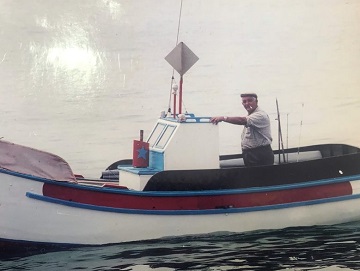
The Oldest Fisherman in Ericeira
No one gives you the ninety years made months ago, but gentlemen, already there sing, confirms, of easy laughter and critical spirit always present. He drives his car, has his coffee and toast for breakfast, his apple tree and still goes to Malhada. José Álvaro Matos Arvelo, nicknamed Tuta, was born in Ericeira, in Travessa do Caminho, in 1933. He came to this world as twelfth (his mother had 15 children), at the age of four he had twin sisters of two, and after them the youngest, Beatrice, was born. He is the son and grandson of fishermen. The nickname was given to him by an older brother, also Tuta. Photos, >click to read< 09:23

Fiesta: ‘What we are all about’
After a couple of days of carnival rides and musical entertainment, and a day of competition among seine boat crews and Greasy Pole walkers, America’s oldest seaport in its 400th year gathered in St. Peter’s Square on Friday night to officially kickoff the 96th St. Peter’s Fiesta. The celebration by the city’s Italian-American fishing community in the Fort neighborhood dates to 1927 and is hosted by the St. Peter’s Fiesta Committee. It’s held each year on the weekend closest to the Feast Day of St. Peter. The committee’s president, Joe Novello, took to the massive outdoor altar that Novello, an electrician by trade, wired. In opening the weekend’s festivities, he spoke about the thousands who have gathered in the neighborhood over the years to celebrate Fiesta and shout “Viva San Pietro!” Photos, >click to read< 97:47
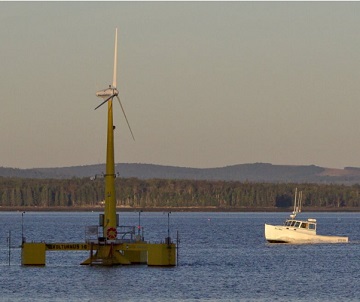
U.S. Rep. Jared Golden introduced a bill in Congress that would prevent offshore wind development in key fishing area
The bill would prevent the federal Bureau of Ocean Energy Management from potentially hurting the fishing and lobstering industries in Maine, said Golden, D-2nd District. The legislation also would launch an assessment of how federal agencies like the BOEM and the National Marine Fisheries Service study the effects of offshore wind development and engage with industry groups. Lobster Management Area 1 is the zone closest to the shores of Maine and stretches along the entire coast. That’s where Virginia Olsen, a commercial lobsterman and director of the Maine Lobstering Union, says a majority of Maine fishing and lobstering is concentrated. “I think this is the exclusion zone that the Maine Lobster Union and the area that the (Maine Lobstermen’s Association) would agree is most important economically to the fishery,” Golden said. >click to read< 19:46
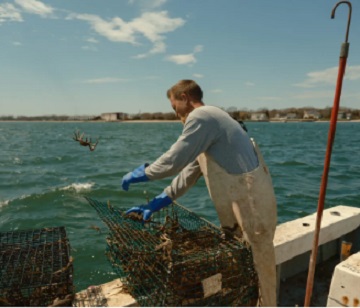
Peconic Bay Scallops are a legacy at risk
For more than 30 years, Tim Sweat has spent the early morning hours of winter on Peconic Bay. By noon on most days, he would collect thousands of pounds of scallops — enough to cover the daily cost of maintaining his boat, plus put aside some extra money for the holidays. But for the last four years, as bay scallops continue to die off at an alarming rate, he’s finished the season with little to show for his efforts. “I’ve spent most of my life out here on the water; fishing is my whole life. But the future is not looking very promising for the smaller boats like me,” Sweat said. “We’re struggling to make a living out here, things keep dying off.” >click to read< 13:33

‘Deadliest Catch’: Who is the Richest Captain in the Series?
The richest captain in Deadliest Catch is season 19 star Sig Hansen, captain of F/V Northwestern. Sig has a reported net worth of $3.5 million and brings in an annual salary of $500,000 to $1,000,000. He first started fishing while on his parents’ boat at the age of 14, and after high school, he made it a year-round activity. His father, Sverre, pioneered the Alaskan crab fishing industry, so it was always in Sig’s blood to take to the Bering Sea. The second richest captain on the show was “Wild” Bill Wichrowski, captain of F/V Summer Bay, with a net worth of $3 million. The third richest was Jake Anderson, captain of F/V Saga, with a net worth of $1.8 million. Video, >click to read< 12:05
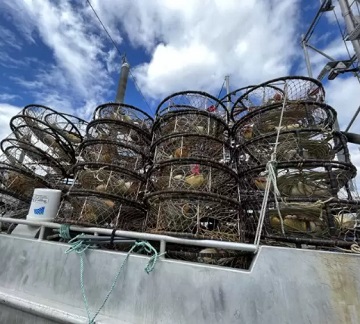
Southeast Dungeness fishery opens to low prices
Two days before crabbing started, Petersburg fisherman Paul Menish was in the cabin of his boat, the “Hi Nikki,” speculating on crab prices. “Sounds like prices aren’t going to be as low as we were quoted three weeks ago,” said Menish. “Now, it’s just rumors, but that the prices will be for Dungeness, will be in north at two dollars. Which isn’t a good price but better than three weeks ago.” It turns out Menish was right. When he sold his first load to OBI Seafoods in Petersburg, he said he got $2.10 a pound. That’s fifty cents lower than the starting price last summer. >click to read< 10:15
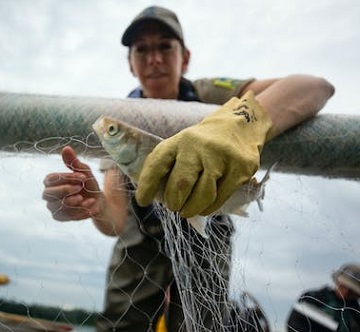
Historic boom in Lake Superior’s herring population could be best in 40 years
Potentially record numbers of lake herring, also called cisco born last spring seem to have survived their first year of life, according to state and federal biologists. At a year old, they should be just large enough that few predators in Lake Superior will now eat them. The stunning boom, not seen since at least 1984, will help sustain both the ecosystem and Minnesota’s commercial fishing industry in one of the world’s greatest lakes for years to come, said Cory Goldsworthy, Lake Superior fisheries supervisor for the Minnesota Department of Natural Resources. “This is what we’ve been waiting for,” Goldsworthy said. “It’s something we’ve never seen before in our careers and may not see again.” >click to read< 09:46
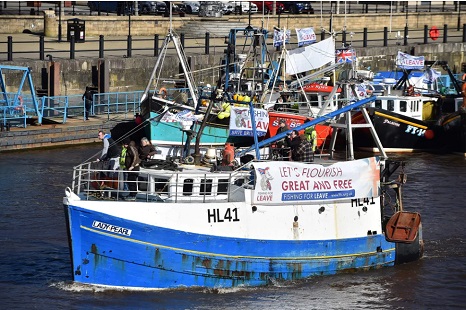
Hook, Line, and Sinker: How Brexit betrayed the UK fishing industry
Retired fisherman Charlie Waddy, former first mate of the Kirkella, knows what’s at stake on the ocean. His close friend died while working on deck beside him; his father was lost at sea returning from Iceland and Norway when Waddy, the youngest of seven children, was just three years old. But for the desperate hand of a nearby crewmate, Waddy himself nearly went overboard, his chances of survival slim in the frigid and pulsating waters below. Believing evocative memories of trawlers departing for distant seas might be reclaimed, Waddy voted for Brexit. He said he now felt betrayed by politicians who extoled the benefits of leaving the EU but then failed to deliver. “I wish I never,” he sighed. “They told us everything that we wanted to hear.” Photos, > click to read< 08:30
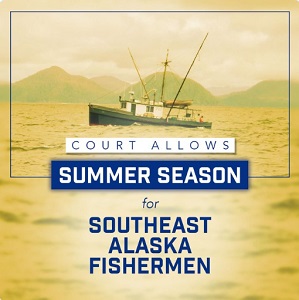
Alaska’s fishermen and communities celebrate decision to allow Southeast Alaska’s Chinook troll fishery to open on July 1st
Southeast Alaska’s fishermen and communities welcomed the U.S. 9th District Court of Appeals’ decision on June 21st to keep Southeast Alaska’s Chinook troll fishery open while the National Marine Fisheries Service (NMFS) addresses a technicality in its 2019 Biological Opinion for Southeast Alaska’s salmon fisheries. In its order, the federal appeals panel shared that there was ample evidence submitted showing that the impacts of shutting down the Alaska salmon fishing industry would “outweigh the speculative environmental threats” of keeping the fishery open. “The court’s decision is a huge relief for hundreds of small-boat fishing families that rely on this fishery for their income,” said Linda Behnken, Executive Director of the Alaska Longline Fishermen’s Association. >click to read< 07:15







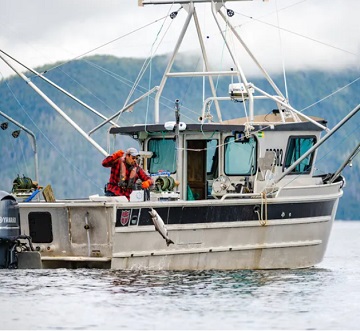



























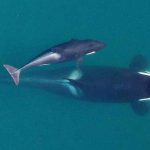
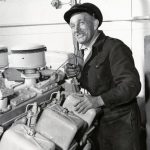

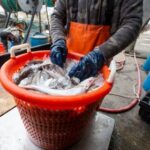
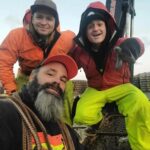
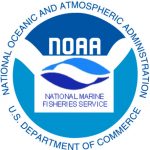
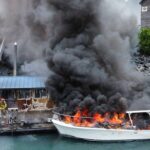
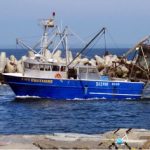

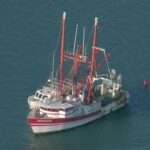
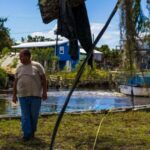

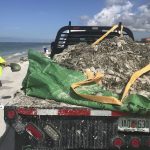




Ross Greer accused of ‘outrageous slur’ with ‘disgraceful’ comment about fishermen over marine area controversy
A Greens backbencher has been accused of a “outrageous slur” when he claimed that those who stand against the Scottish Governments fishing ban “are not interested in securing the future of families who have relied on fishing for employment for generations.” West of Scotland MSP Ross Greer said his accusations applied to “some” in the industry who he feels are to blame for the widespread backlash to plans for Highly Protected Marine Areas (HPMAs). Scottish Conservative shadow rural affairs secretary Rachael Hamilton MSP, said: “These disgraceful remarks from Ross Greer once again highlight how out-of-touch the Greens are with the needs of our fishermen and coastal communities. >click to read< 13:57
Share this post